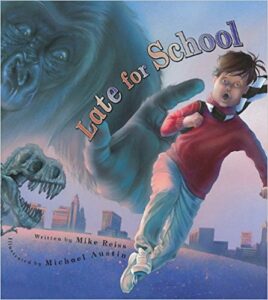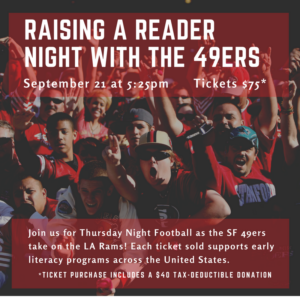Late for School
FOR THE WEEKEND share this title with your child.
Late for School is appropriate for school age children.

Summary:
Late for School is a lyrical adventure Smitty embarks on to make it to school on time. Smitty has never been late to school and black tar, a humongous whale, nor robots from Mars will stop him on his race to beat the school bell. Author Mike Reiss’ rhythmic text paired with illustrator Michael Austin’s vivid images are an exiting reminder that for some kids, getting to school on time can be quite the adventure!
Practice this Comprehension Strategy-Sequencing:
Late for School is a great book to practice sequencing. Sequencing is putting events in order. After you read flip back through the pages with your child to and try to remember which event came next. Did it rain whole snowmen or did Smitty get swallowed by a whale first. Ask questions like this about the other events in the story as well. By taking a further look into the exciting events of the story your reader will become more engaged and have a more impactful experience overall.
Do this with your child:
After you read Late for School talk with your reader about what other crazy adventures might have gotten in Smitty’s way on his race to school. Choose your favorite idea and draw a picture of that extra adventure together!
If you’re interested in sharing Late for School with your child you can find it from Peachtree Publishers here.

